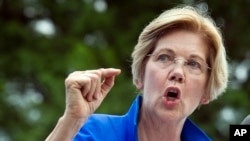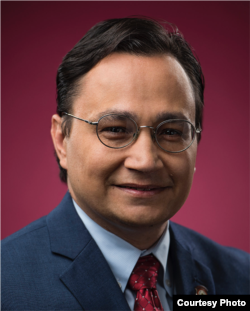Native Americans across the United States have reacted with anger over the results of a DNA test that proves claims by Democratic Senator Elizabeth Warren that she has Native ancestry.
The report by Stanford University biochemist Carlos Bustamante concluded that Warren has largely European ancestry, but "strongly support the existence of" a Native American ancestor six to 10 generations ago.
Since 2012, Warren, who was identified in professional directories as a minority for years, has repeatedly claimed Cherokee and Delaware Indian heritage, citing family folklore. She has also denied using the claim to advance her academic and political careers.
The Cherokee Nation was quick to condemn the Bustamente report.
"A DNA test is useless to determine tribal citizenship," Cherokee Nation Secretary of State Chuck Hoskin Jr. said in a statement Monday. "Current DNA tests do not even distinguish whether a person’s ancestors were indigenous to North or South America.”
Hoskin added that the "innappropriate" claim dishonors legitimate tribes and their citizens.
“Her tree was traced to the colonial era and turned up nothing,” David Cornsilk, historian and genealogist and citizen of the Cherokee Nation and the United Keetoowah Band of Cherokee, told VOA.
The outrage was shared by members of many other tribes.
Kim TallBear, a citizen of the Sisseton Wahpeton Oyate in South Dakota and professor at the University of Alberta who specializes in the intersection of science and racial politics, issued a statement accusing Warren and "much of the U.S. public" of ceding the issue of Indigenous identity to “mostly white” geneticists and not to tribes themselves.
“The U.S. state was and continues to be built upon appropriations of resources from Indigenous peoples,” she wrote.
Posts by Native Americans in social media reflect a weariness at having to repeatedly remind non-Natives that being Native is not solely about bloodlines but belonging to tribal communities.
“The problem with using genealogy and genetic ancestry testing to find your mysterious Indigenous ancestry that was always part of your family lore is that such new discoveries whitewash the lived experiences of actual Indigenous people,” wrote historian and anthropologist Ferris Kade (Ojibwe/Metis) on his Dibaajimowin blog.
“Racialization of indigenous identity, rather than such identity being connected to community and kinship, could end up focusing negative attention on tribes and how tribes are funded, with the argument being that races cannot receive ‘special treatment,’” he told VOA. “That's why the wholesale acceptance of Elizabeth Warren's DNA-based claim to an indigenous identity is so harmful - because it is an existential threat to tribes themselves.”
He added, “If everyone with a drop of Native blood is able to claim to be indigenous without question, then it becomes a matter of race - no different than people who are ‘100 percent Irish’ every St. Patrick's Day.”
Million dollar bet
Trump has repeatedly mocked Warren’s claims, dubbing her “Pocahontas,” after the 17th century daughter of a Powhatan chief closely associated with British settlers in Virginia. During the 2016 presidential campaign, Trump vowed to contribute $1 million to Warren's favorite charity if a DNA test proved her assertions.
Trump said Monday he would only make good on the bet if he could “test her personally.”
Warren said she would hold him to the bet, asking him to donate the money to the National Indigenous Women’s Resource Center (NIWRC), a nonprofit which works to end gender-based violence against Native and Indigenous people.
“We appreciate Senator Warren's push to bring awareness to violence against American Indian and Alaska Native women and families, who all too often are invisible to most Americans,” NIWRC responded in a statement on its website.
"We will continue to do this lifesaving work with or without the President’s donation,” said NIWRC Board Chairwoman Cherrah Giles, a citizen of the Muscogee (Creek) Nation in Oklahoma.





